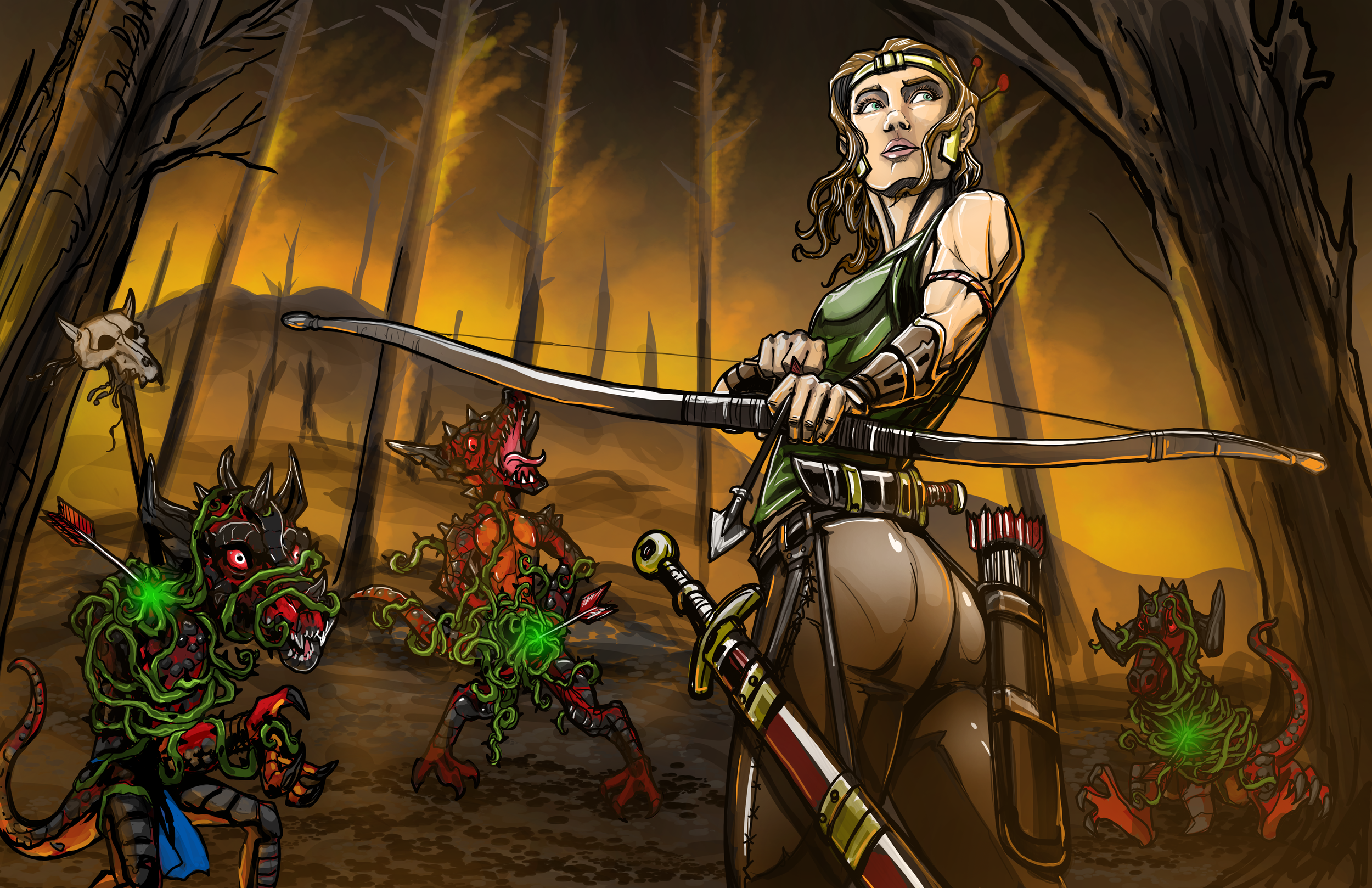Always on the lookout for danger, you gain the following benefits:
You can't be surprised while you are conscious.
You gain a +5 bonus to initiative.
Other creatures don't gain advantage on attack rolls against you as a result of being unseen by you.
Alert: Keep Your Eyes Peeled
Review by Sam West, Twitter:@CrierKobold
Alert has its fans, and I get it. There's a comfort in knowing you will be acting in the first round of combat. Getting a +5 to your initiative seems like a lot. Preventing unseen attackers from gaining advantage can be useful. All of them combined looks like a lot of goodness for feat. Here is my problem, though: with how initiative functions, the bulk of this feat works at most once an encounter, and sometimes doesn’t really contribute at all to it.
Acting in surprise rounds can be invaluable to some games with extreme levels of difficulty, but for the most part I don’t expect the majority of encounters will be ambushes. A lot of D&D involves you approaching and instigating fights; the element of surprise can be valuable to have on either side of the table, but it’s incumbent on the players generally being aware to mitigate surprise or earn it for themselves. Alert is often going to just be overkill to cover you if you didn’t get the fifth hint that there are goblins defending this outpost. The majority of encounters you’ll face won’t involve some element of surprise, meaning this is a tool that helps in the minority of encounters (albeit, it helps a lot in those encounters).
Next up is the initiative bonus. This is an advantage that matters a lot in very short, high damage encounters, and very little in long drawn out fights. Because initiative order is cyclical, once you act, you functionally are bumped down to the bottom of initiative as it runs through; if you’re not killing or disabling creatures, they’re still acting the same number of times as you. If you can disable or kill something quickly, the advantage piles up, and can quickly push a fight into your favor. A +5 modifier is solid, but unless you’re also packing a high Dexterity, doesn’t really ensure you will act earlier, but simply gives you a decent bump up where you sometimes act earlier. In long fights with high durability enemies, or large quantities of low impact smaller ones, this can be an almost meaningless benefit. In short fights where you’re in a kill or be killed in one to two rounds, this bonus can be the difference between life and death. I prefer games that run the prior type of encounters, but if you know your table leans more on the lethal side, this can be justifiable.
The last boon is hard to evaluate, as once again, it’ll vary widely DM to DM. There aren’t a ton of creatures who will be routinely hiding from you, nor ones that want to be invisible or otherwise unseen. It turns out playing a game where you can’t see your enemy can be incredibly frustrating, and navigating locating it with the already flimsy shared grasp of the environment constructed in the theater of the mind pushes DMs to use monsters that are visible more often and challenge the players in other ways. Skirmishing-style encounters are hard to run, which is where this is particularly good. If you’re at a kick in the door and kick ass type of table, you’re not going to be going against that many unseen threats. Most of the time you can see what’s trying to kill you, and it can see you. The game tends to be more fun that way (to me, at least).
This all comes together to say Alert is a feat for a very specific character at very specific tables. High lethality encounters where you’re playing an assassin rogue or other opportunist character jumps to mind as one such character. In most cases, Alert is just a series of minor passive bonuses you won’t engage with often enough where you’ll feel it was worth it. I’d take something that gives you active tools to engage with the world instead if you’re going for a feat.
Thank you for visiting!
If you’d like to support this ongoing project, you can do so by buying my books, getting some sweet C&C merch, or joining my Patreon.
The text on this page is Open Game Content, and is licensed for public use under the terms of the Open Game License v1.0a.
‘d20 System’ and the ‘d20 System’ logo are trademarks of Wizards of the Coast, Inc.
and are used according to the terms of the d20 System License version 6.0.
A copy of this License can be found at www.wizards.com/d20.



